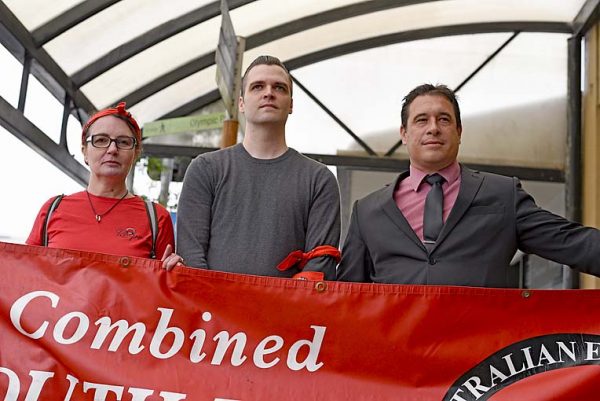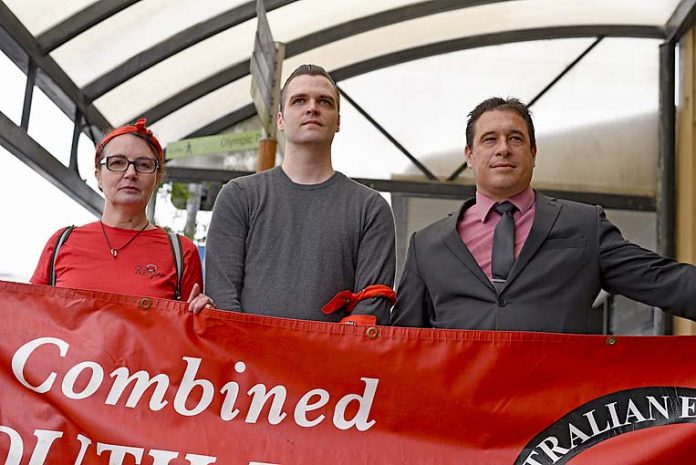
THOUSANDS of regional public school students could be thrown into limbo next month if a planned strike by teachers moves forward over a lingering pay dispute.
The looming strike – scheduled for July 1 – will potentially see more than 700 South East teachers join the full day statewide protest.
The impasse comes as the Australian Education Union (AEU) SA branch this week rejected a pay offer proposed by the State Government, which would potentially see South East teachers among the lowest paid in the nation.
Other issues sparking the union backlash include a pay disparity with other states and the lack of sustained country incentives.
The strike will be the second teachers strike in Mount Gambier within a seventh month period.
The union’s SA executive met this week to canvass the 2.35pc per annum offer by Treasurer Rob Lucas, which would trigger a $699m black-hole in the State Budget.
Lucindale Area School principal – who is an AEU elected executive member – Adrian Maywald said the government’s offer was “just not good enough”.
Mr Maywald expressed his frustration with the “unfair” offer in comparison with other Australian states.
“The department has sold the offer as amazing but they did not show the full comparison against other states,” he said.
“The salary offer being put forward will see South Australian teachers paid at the lowest level across the country and 5.8pc behind Victoria.
“We traditionally would hold our spot in the top three states in the past agreement and we want hold the same competitive salary, which will compete with our counterparts, not at the bottom.”
The offer earmarked a further $45m over four years of additional support for schools identified as having high levels of complexity and $13m to create new positions for highly-accomplished and lead teachers.
Another $4.3m was proposed to attract and retain teachers to country schools.
Mr Maywald claimed the state was already “struggling” to fill positions in education and the offer was “not enough”.
“We are a main training area for teachers, so we are looking for improved strategies to keep, develop and improve their skills instead of us starting all over again,” he said.
“If you are considering the South East, Victoria is a `no brainier’ option for teachers to move to for an extra $5000 a year,” he said.
A country conditions allowance extension was also not considered in the offer, according to Mr Maywald.
“At the moment country incentives apply for the first five years of a teacher’s career but after that you take a pay cut,” he said.
“You would not see many other industries doing this so we have proposed ongoing payments.
“In rural areas it can involve over 10 hours of driving for a course or flight payments so there needs to be a genuine allowance to allow for proper professional development.”
Mr Maywald said rural areas such as the South East would be impacted significantly if the proposal was accepted.
“There was a small regional proposal in the offer but it was not clear on how it was going to be implemented and the executive did not feel it would meet the needs of country sites,” Mr Maywald said.
“We did not want to compromise and we want to make sure there are quality teachers across all country regions.
“We would like to see country education having the same success level as its city counterparts.”
Mr Maywald suggested the pay offer also needed to include something for “middle-ground” educators, to make the step up and extra workload worth it.
“If you are a top level class teacher, there is no room to step into middle management or coordinator roles because the salary difference is not worth the extra meetings and pressure,” he said.
“So we have proposed for there be enough variation to say it is worth stepping up and taking on more workload and this is currently not on the table.
According to the long-term educator, the state’s public education system would be “worse off” through the past 10 bargaining agreements spanning each three years.
“The union does a great job of holding the government accountable in making sure we get the best possible deal to support kids in public education,” Mr Maywald said.
“The union tests and checks, making sure it really is what is needed.”
Mr Maywald said the executive group would like to see a “competitive offer” worth taking up for members before July 1.
“If an offer is not accepted, the approximately 700 South East AEU members have agreed to stop work for a full day on Monday 1 July, wear red and attend the rally on the steps of Parliament House at 11am,” he said.








